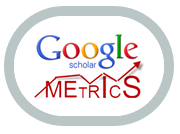Axiologia E Linguística: Uma Reflexão Sobre Os Valores Sociais E A Mentira No Currículo De Políticos
DOI:
https://doi.org/10.47456/pl.v11i29.36789Resumen
Este artigo propõe uma reflexão sobre texto e valores na educação para uma sociedade democrática, considerando uma notícia política (EXAME, 2019), justificada pelo fato de a escola estar comprometida numa relação de forças de ação política que frequentemente a desqualifica. A metodologia faz a interface Axiologia (ARANHA, 1989; FREIRE, 1996), Linguística Textual (KOCH, 2011; CAVALCANTE, 2016) e Pragmática (GRICE, 1982). Numa perspectiva linguística, a análise mostra uma organização textual estratégica da notícia, por parte da jornalista, para reprovação da mentira e exposição dos mentirosos e, por parte dos políticos, a negação da mentira e o esforço para atenuá-la ou recategorizá-la. Numa perspectiva sociopolítica, o processo de conscientização sobre valores deve fazer a conexão escola e vida. Assim, ao mesmo tempo em que a ética precisa fazer parte da formação política do aluno para (co)administrar a cidade para o bem-comum, espera-se que os governantes tenham essa formação e sejam exemplos de cidadania para os educandos, o que o fato noticiado contradiz. Por fim, numa perspectiva educacional, instituições e educadores comprometidos com o ideal crítico e democrático precisam desempenhar seu papel ético pelo necessário exercício da interação dialógica e da respeitosa convivência humana, para formar um cidadão crítico e uma sociedade democrática.
Descargas
Descargas
Publicado
Cómo citar
Número
Sección
Licencia
Derechos de autor 2021 PERcursos Linguísticos

Esta obra está bajo una licencia internacional Creative Commons Atribución-NoComercial-SinDerivadas 4.0.
O autor de submissão à Revista PERcursos Linguísticos cede os direitos autorais à editora da revista (Programa de Pós-Graduação em Linguística - UFES), caso a submissão seja aceita para publicação. A responsabilidade do conteúdo dos artigos é exclusiva dos autores. É proibida a submissão integral ou parcial do texto já publicado na revista a qualquer outro periódico.
Os trabalhos aqui apresentados utilizam a licença Creative Commons CC BY: Attribution- NonCommercial- NoDerivatives 4.0 International. Para mais informações, verificar: https://creativecommons.org/licenses/by-nc-nd/4.0/
Os trabalhos na revista são arquivados pelo sistema Rede de Preservação PKP (PKP PN) e LOCKSS





